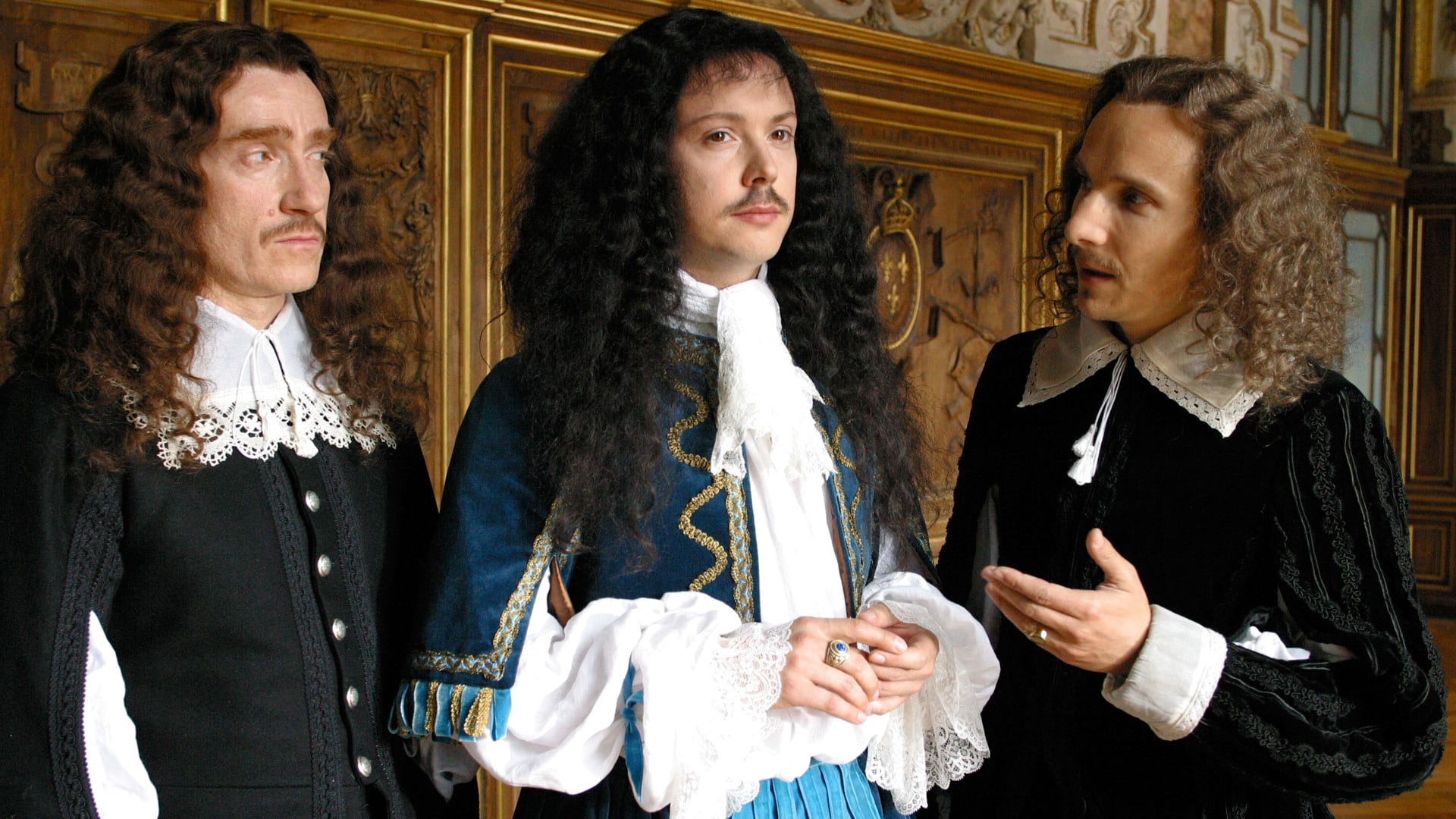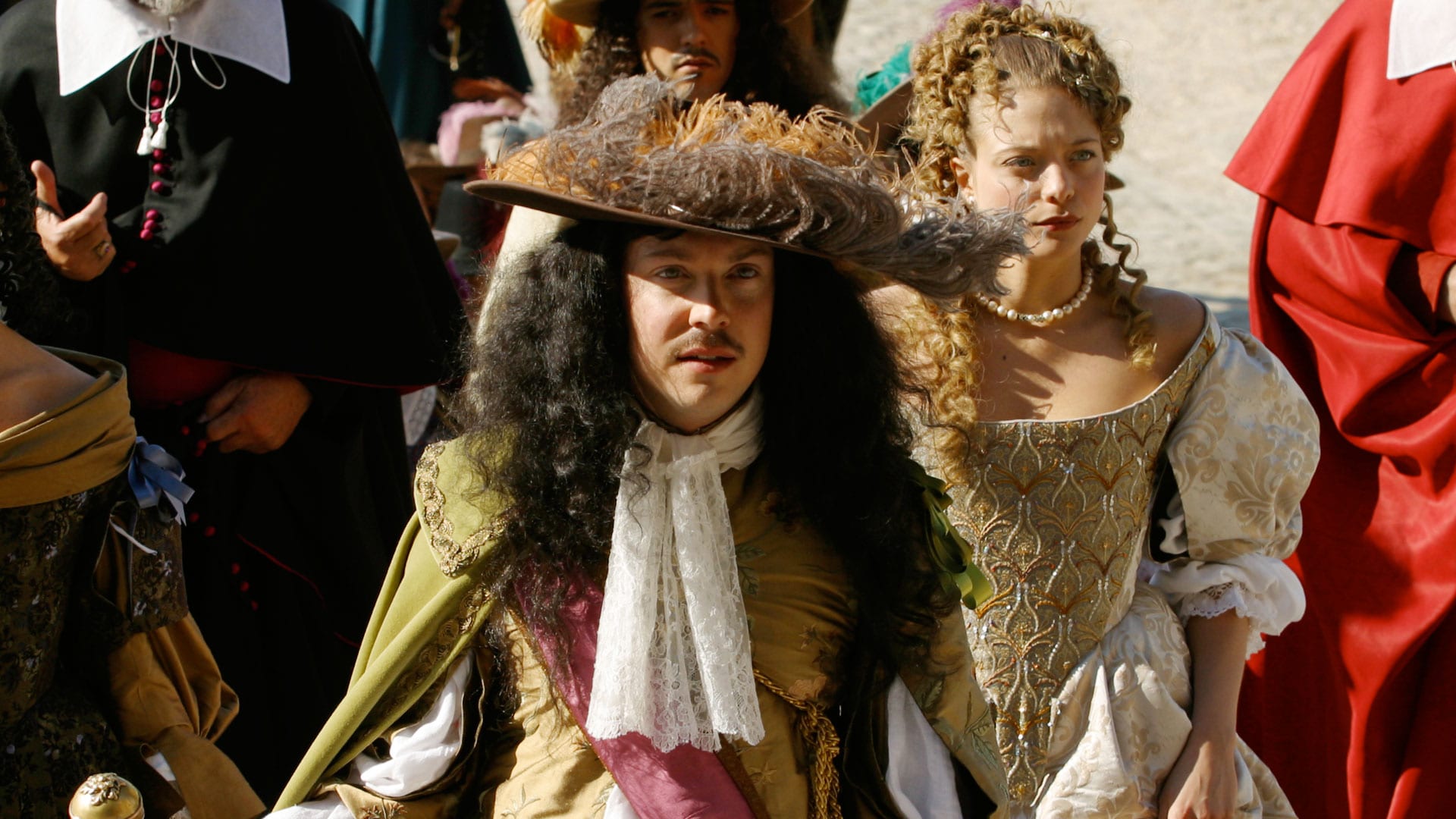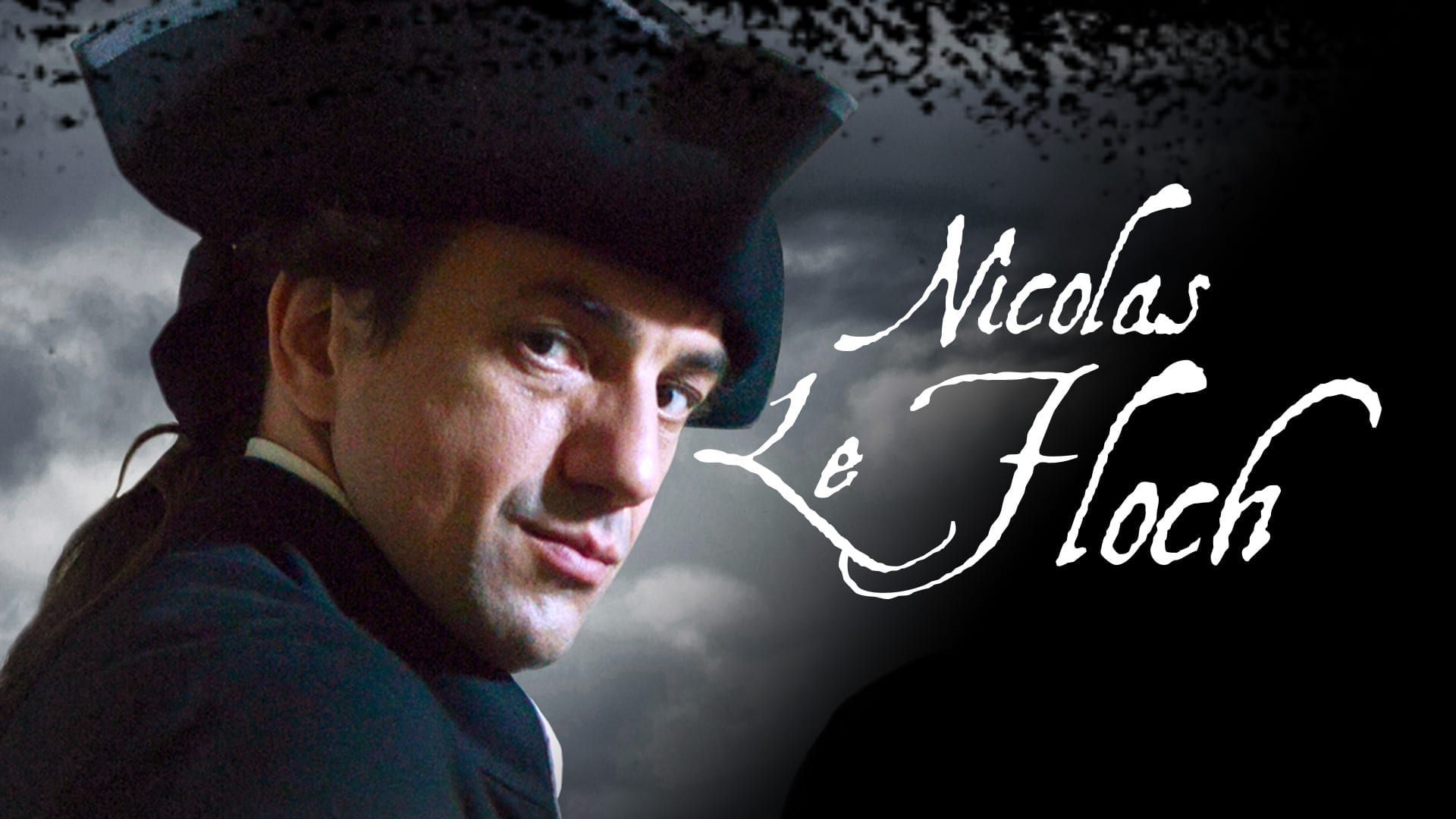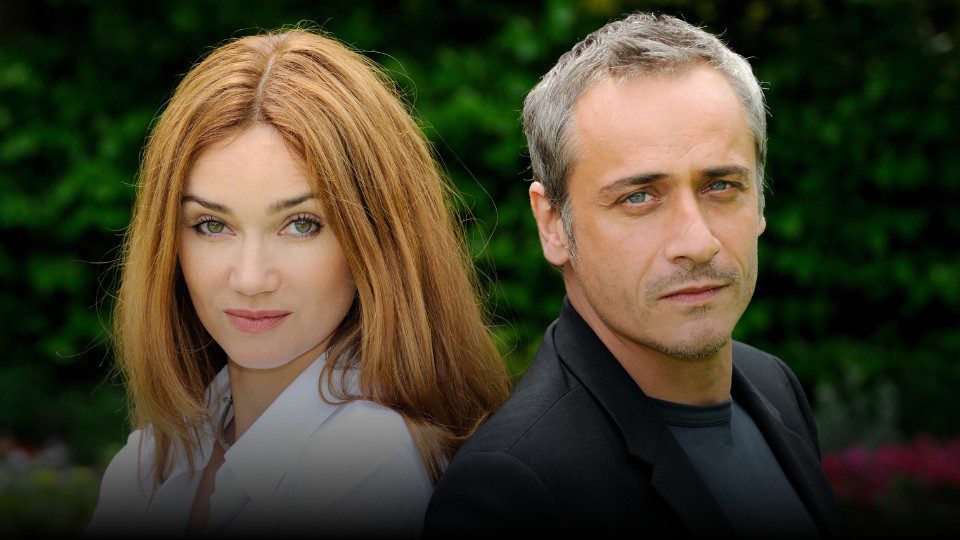EDITOR’S NOTE: We happily discovered Dr. Pearl Brandwein while reviewing MHz Choice subscriber feedback on our programs and, after reading a half dozen or so of Dr. Brandwein’s insightful reviews, all of us here at MHz Choice had the same thought: We need to get the good doctor to write for us! Enjoy! -MHz Choice
The MHz Catalogue is a treasure trove of “Hidden Gems” – films, documentaries and shows that excite and invite you in. If you haven’t seen them before, now is the time to catch up on what you have missed.
In honor of Bastille Day, MHz Choice presents two Hidden Gems from France that bookend the French Revolution (1789-1799). In the movie, THE KING, THE SQUIRREL and THE GRASS SNAKE, the historical courtiers and politicians, Nicolas Fouquet (1615-1680) and Jean-Baptiste Colbert (1619-1683), play a dangerous cat and mouse game at the court of King Louis XIV, as they outwit and outdo one other. Each one takes turns as the cat or as the mouse while the closely encroaching flames of revolution begin burning consistently hotter and brighter. NICOLAS LE FLOCH, the fictional police detective who interacts with various historical personae, is the moral center of an unstable, politically corrupt society teetering on the precipice of imminent destruction.
The King, the Squirrel and the Grass Snake (Parts 1 & 2)
DRAMA | FRANCE | FRENCH WITH ENGLISH SUBTITLES | TV-14
A tasty amuse-bouche for Bastille Day is the story of the rise and fall of a uniquely-French arriviste, Nicholas Fouquet in the movie, THE KING, THE SQUIRREL and THE GRASS SNAKE, which proves the old adage: ‘keep your friends close and your enemies closer.’ Nicolas Fouquet, portrayed by Lorent Deutsch, is an upper-class, minor aristocrat whose family wealth and cunning make him the very model of unbridled ambition. His keen intellect, resourcefulness and self-aggrandizement enable him to rise to the top of the heap – and what a heap it is – Superintendent of Finances (US equivalent to Secretary of the Treasury; UK equivalent to Chancellor of the Exchequer) – despite plots and counterplots to derail him. Jean-Baptiste Colbert, portrayed by Thierry Fremont, Fouquet’s arch enemy and deadly rival, is a most worthy adversary who is a self-made man from a middle-class merchant family; nevertheless, he is able to subordinate his ambition to the wishes of King Louis XIV. Coveting Cardinal Mazarin’s position as France’s “holder of the purse strings,” Colbert ingratiates himself with the King through slanderous lies, half-truths and bold accusations against his competitor, Fouquet. Fortunately, Fouquet’s 20-year imprisonment saved his life from the guillotine. Although appearances count more than substance at court, Colbert’s “frugality” permits the King’s continued extravagance which was once in competition with Fouquet’s.
Louis XIV’s reign masked long-simmering consequences for his grandson, Louis XVI, and emboldened the sweeping, far-reaching reforms of the French Revolution. This historical 17th Century slice-of-life foreshadows Nicolas le Floch and his era. As a fictional policeman in 18th Century France during the reign of Louis XV, Le Floch was a witness to the aristocracy’s salient traits of hypocrisy, self-deception and self-absorption through their unbridled and unencumbered pursuits of the good life at an exorbitant cost to the poor, the disenfranchised and the powerless. The incisive portraits of these real life individuals as well as the fictional incarnations of a combination of real people provide relevant lessons to be learned in every generation.
The movie is presented in two parts within season 2 of Movie of the Week.
Nicolas Le Floch
MYSTERY | FRANCE | FRENCH WITH ENGLISH SUBTITLES | TV-14
NICOLAS LE FLOCH is a clever, imaginative and brilliantly-rendered adaptation of 12 out 14 novels written by Jean-Francois Parot, a French diplomat and writer of historical mysteries.
Although Nicolas le Floch is a costume drama, the hero –- a policeman — succeeds in his job despite and because of the numerous obstacles placed in his path. Guided solely by his keen intelligence, wits, powers of observation and deduction as well as a formidable intuition and a fearless ability to take risks, he always manages to catch the culprit(s) with his loyal aide, Insp. Bourdeau. As a reward for his talents, King Louis XV awards him the title “commissaire du Chatelet” – the Monarchy’s seat of justice and law.
Parot’s (1946-2018) novels combine history and mystery on the grandest scale by interweaving the historical and the fictional. Parot’s fictional police detective works for the real Royal Lieutenant-General of Police, Antoine Raymond Gabriel de Sartene, Comte d”Alby [1759-1774] who bought his position from the King. (Later, he bought his position as Secretary of the Navy, 1774-1780.) Sartene’s power knew no limits; he could imprison real and perceived enemies of the Crown without trial using “lettres de cachet.” An important contemporary of le Floch was the real Charles-Henri Sanson, the Royal Executioner, who would eventually guillotine King Louis XVI.
Hugues Pagan, a former police officer, novelist, screenwriter and winner of the Prix Mystere de la critique, adapted Parot’s novels in this absorbing, well-researched and documented six season (2008-2018), 12-episode drama, starring Jérôme Robart in this portmanteau of 18th Century French manners and mores depicting every socio-economic, political and religious class. As a policeman, le Floch must rub elbows with all levels of society – sometimes to his detriment – but always contributing to his own enlightenment when assimilating the broadest range of motives while analyzing and parsing through information leading to the capture of the guilty. The cinematographer along with the actors, writers, directors and editors bring the Age of Enlightenment of “Le Roi Soleil” and his descendants to life. Parot’s “porte-de-parole” — Nicolas le Floch — sees the decay that will engulf the “Ancien Regime” and realizes that his future lies in the newly-independent American colonies – then as today – it is the only place for a person of vision, perseverance and ambition willing to forge a new life unencumbered by outmoded values while risking life and limb in pursuit of a dream for “Liberte! Egalite! Fraternite!”
SIDE NOTES and further context for 17th and 18th Century France:
In order to fully understand the historical and fictional inhabitants of 17th and 18th Century France, we must scrupulously examine the political, economic, religious and social determinism woven into the fabric of the European continent in general and — France — in particular. Beginning with the Age of Discovery from the 15th to the 17th Centuries, Europe’s exploration of the new world led to profitable new trade routes and the colonization of the Americas with cheap labor provided by the enslaved indigenous population and the importation of Africans. The Age of Discovery was pivotal to the Scientific Revolution between the 17th and 18th Centuries, whose “scientific method” of experimentation revolutionized the fields of knowledge in mathematics, physics, astronomy, biology and chemistry. The Scientific Revolution would bring about the Industrial Revolution in the 19th Century.
The brilliant and versatile Rene Descartes (1596-1650), Baruch Spinoza (1632-1677), Isaac Newton (1642-1727), John Locke (1632-1704) and Thomas Hobbes (1588-1679) among others were instrumental in the pursuit and advancement of knowledge begun in the Renaissance. The luminaries of the Age of Reason in the 17th Century ushered in the Age of Enlightenment in the 18th Century, whose bold-face names read like a Who’s Who of world-class thinkers, philosophers, diplomats, economists, jurists, mathematicians and scientists.
This illustrious group includes Denis Diderot (1713-1784), art critic and literary theorist, anti-Church polemicist and author of “La Religieuse” as well as founder/editor of the world’s first “Encyclopedie” – the embodiment of knowledge in the fields of economy, theology, music, physics, history, politics, mathematics and science which lay the foundation for later iterations of knowledge in the digital age. Jean-Jacques Rousseau (1712-1778), educational reformer and forerunner of Romanticism, who wrote “le contrat social” which influenced America’s Founding Fathers, especially Jefferson’s democratic ideal of government by the people for the people. The Enlightenment’s “philosophes” also influenced Simon Bolivar, whose embryonic revolutionary zeal was stoked by the French Revolution as he embraced his destiny by liberating his homeland from Spain. Pre-eminent among the “philosophes” was Jean-Francois Marie Arouet, better known by his nom de plume, Voltaire (1694-1778). He outlined his political, economic and social philosophy in various works; however, his novella, “Candide,” (1759) characterized both as a satire and a picaresque novel, is a philosophical treatise and primer on life’s purpose. Our hero, Candide and his friends experience a series of fantastic and unbelievable adventures only to discover that life’s sole purpose is to be content – a direct rebuke of Leibniz’s philosophy of optimism (“everything is for the best in the best of all possible worlds”) and its offspring – happiness. For Voltaire, true happiness results from inner peace when living in harmony with nature and the mutual love, respect and equality for one’s fellow man as well as respecting the dignity of labor which provides food, shelter and clothes encapsulated in the dictum “il faut cultiver notre jardin.”
Foremost among the Enlightenment’s thinkers, who have cast the longest and most influential shadows upon every generation, are the towering figures of Immanuel Kant (1724-1804) and Charles, Baron de Montesquieu (1689-1755). Kant’s comprehensive works in epistemology, religion, jurisprudence, astronomy, ethics, metaphysics, aesthetics, history and political theory made him the leading exponent of transcendent space and time structuring all experience simultaneously parallel to and in opposition to the Copernican model since man’s ability to reason is the source of all rational and empirical thinking. His influence on political economist, Adam Smith (1723-1790) cannot be overestimated in his magnum opus, “Wealth of Nations” (1776). Judge, man of letters, historian and political philosopher, Montesquieu’s theories of the separation of powers was implemented in the US Constitution as well as in Britain’s parliamentary laws through Edmund Burke’s (1729-1797) pragmatic conservatism.
The Rights of Man and the Separation of Powers are the twin pillars of the Enlightenment whose chief proponents, Kant and Montesquieu formulated and designed the framework to be used by all future political entities and governmental institutions that would influence, shape and guarantee the political, social, religious and economic policies in order to protect human rights and all freedoms; to advocate racial and religious tolerance, and to ensure the right to education for all; as well as the right to unionization and to equitable treatment for everyone under the law.
One can only hope and pray that current and future epochs will produce exceptionally-brilliant, inspiring and thought-provoking men and women just as the Ages of Reason and Enlightenment had.
About the author:
A lover of Romance languages and cultures, Dr. Pearl Brandwein has a Certificate in French Culture and Civilization from the Sorbonne. She then earned both her Masters’ degree in French Language/Literature and Ph.D. in Comparative Literature from New York University. Dr. Brandwein’s areas of academic expertise include the Renaissance and the Faust Figure in European Literature in addition to 19th and 20th Century Drama. Her other interests include writing about Holocaust Literature.
Dr. Brandwein began her teaching career at Princeton University followed by faculty positions at other academic institutions. In addition to French, she has also taught German, Latin, English Composition and ESL to corporate executives. After academia, she held numerous positions in the public and private sectors working as an Editor/Instructor/Administrator and as a PR professional and business communications executive directing editorial and marketing initiatives for EU clients.
She is a cineaste and a lover of Film Noir, Westerns and foreign films as well as a theatre and opera buff; she also attends concerts, lectures, ballet performances, museum and gallery exhibitions. In her rare spare time, she reads voraciously.
Want to get MHz Choice Premiere announcements sent to your inbox?
Sign up for our free newsletter here!
MHz Choice is available in the U.S. & Canada. Free 7-day trial then $7.99/mo.
Subscribe at mhzchoice.com.






